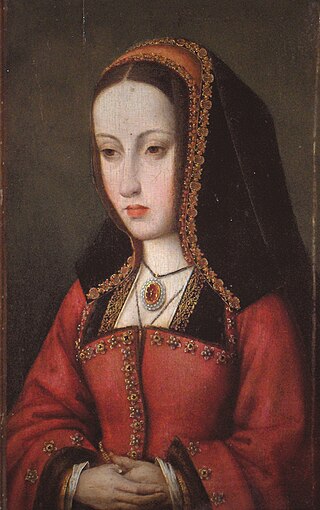This article includes a list of references, related reading, or external links, but its sources remain unclear because it lacks inline citations .(May 2014) |
Philip Aranda (3 February 1642 - 3 June 1695) was a Spanish Jesuit theologian.
This article includes a list of references, related reading, or external links, but its sources remain unclear because it lacks inline citations .(May 2014) |
Philip Aranda (3 February 1642 - 3 June 1695) was a Spanish Jesuit theologian.
Aranda was born at Moneva in Aragon. He entered the Society of Jesus in 1658, and taught theology and philosophy at Zaragoza.
He was connected with the Inquisition of Aragon and was synodal examiner of the Archdiocese of Zaragoza.
He is described by Father Michel de St. Joseph, in his "Biographica Critica", as "a most acute theologian, eloquent in speech, and a most practical and expert athlete in the scholastic arena".
He was fiercely attacked in a satirical work by Martin Serra, a Dominican, who declaimed against "the indifferent, headless, inefficacious writings of certain theologians, especially the olla podrida of Father Philip Aranda", an assault which almost evoked an interdict against the church of the friar.
He died at Zaragoza in 1695.
He published a treatise in 1693, "De Deo sciente, praedestinante et auxiliante", which examines ably the entire subject of scientia media , and solidly and subtlety expounds and illustrates the questions of predestination and divine grace. He explains the mind of St. Augustine, and "without difficulty", it was said, gave the meaning of his difficult expressions, maintaining that they had no reference whatever to predestination; a word which he contends was never, even equivalently, used by the Great Doctor. He adds an appendix on why the procession of the Second Person is called generation.
He wrote on the Incarnation and Redemption; on the natural and supernatural operation of man; on human acts; on good and evil; and on the supernatural.
He wrote also a "Life of the Servant of God, Isabel Pobar".

Predestination, in theology, is the doctrine that all events have been willed by God, usually with reference to the eventual fate of the individual soul. Explanations of predestination often seek to address the paradox of free will, whereby God's omniscience seems incompatible with human free will. In this usage, predestination can be regarded as a form of religious determinism; and usually predeterminism, also known as theological determinism.

Aragon is an autonomous community in Spain, coextensive with the medieval Kingdom of Aragon. In northeastern Spain, the Aragonese autonomous community comprises three provinces : Huesca, Zaragoza, and Teruel. Its capital is Zaragoza. The current Statute of Autonomy declares Aragon a historic nationality of Spain.

Zaragoza also known in English as Saragossa, is the capital city of the province of Zaragoza and of the autonomous community of Aragon, Spain. It lies by the Ebro river and its tributaries, the Huerva and the Gállego, roughly in the centre of both Aragon and the Ebro basin.
Vincent of Lérins was a Gallic monk and author of early Christian writings. One example was the Commonitorium, c. 434, which offers guidance in the orthodox teaching of Christianity. Suspected of semi-Pelagianism, he opposed the Augustinian model of grace and was probably the recipient of Prosper of Aquitaine's Responsiones ad Capitula Objectionum Vincentianarum. His feast day is celebrated on 24 May.

Joanna, historically known as Joanna the Mad, was the nominal queen of Castile from 1504 and queen of Aragon from 1516 to her death in 1555. She was the daughter of Queen Isabella I of Castile and King Ferdinand II of Aragon. Joanna was married by arrangement to the Austrian archduke Philip the Handsome on 20 October 1496. Following the deaths of her elder brother John, elder sister Isabella, and nephew Miguel between 1497 and 1500, Joanna became the heir presumptive to the crowns of Castile and Aragon. When her mother died in 1504, she became queen of Castile. Her father proclaimed himself governor and administrator of Castile.

The Kingdom of Aragon was a medieval and early modern kingdom on the Iberian Peninsula, corresponding to the modern-day autonomous community of Aragon, in Spain. It should not be confused with the larger Crown of Aragon, which also included other territories—the Principality of Catalonia, the Kingdom of Valencia, the Kingdom of Majorca, and other possessions that are now part of France, Italy, and Greece—that were also under the rule of the King of Aragon, but were administered separately from the Kingdom of Aragon.

Francis Turretin was a Genevan-Italian Reformed scholastic theologian.

The 1412 Compromise of Caspe was an act and resolution of parliamentary representatives of the constituent realms of the Crown of Aragon, meeting in Caspe, to resolve the interregnum following the death of King Martin of Aragon in 1410 without a legitimate heir.

Antonio Pérez del Hierro was a Spanish statesman and secretary of king Philip II of Spain.

The Cathedral of the Savior or La Seo de Zaragoza is a Catholic cathedral in Zaragoza, in Aragon, Spain. It is part of the World Heritage Site Mudéjar Architecture of Aragon.

Joseph Mary Pignatelli, SJ was a Spanish priest who was the unofficial leader of the Jesuits in exile in Sardinia, after the suppression of the Society. Supervising its restoration, he is considered the second founder of the Society of Jesus.

William Twisse was a prominent English clergyman and theologian. He was named Prolocutor of the Westminster Assembly in an Ordinance dated 12 June 1643, putting him at the head of the churchmen of the Commonwealth. He was described by a Scottish member, Robert Baillie, as "very good, beloved of all, and highlie esteemed; but merelie bookish".

Monzón is a small city and municipality in the autonomous community of Aragon, Spain. Its population was 17,176 as of 2014. It is in the northeast and adjoins the rivers Cinca and Sosa.

Aranda de Moncayo is a municipality located in the province of Zaragoza, Aragon, Spain. According to the 2023 census (INE), the municipality has a population of 127 inhabitants. The municipality is home to the 12th-century Castle of Aranda de Moncayo.

Trasmoz is a village in the province of Zaragoza, Aragon, Spain, with an estimated population of 96.
Catholic dogmatic theology can be defined as "a special branch of theology, the object of which is to present a scientific and connected view of the accepted doctrines of the Christian faith."

Ferdinand II was King of Aragon from 1479 until his death in 1516. As the husband and co-ruler of Queen Isabella I of Castile, he was also King of Castile from 1475 to 1504. He reigned jointly with Isabella over a dynastically unified Spain; together they are known as the Catholic Monarchs. Ferdinand is considered the de facto first king of Spain, and was described as such during his reign, even though, legally, Castile and Aragon remained two separate kingdoms until they were formally united by the Nueva Planta decrees issued between 1707 and 1716.

Hernando de Aragón y de Gurrea, OCist, Archbishop of Zaragoza and Lieutenant General of Aragon, was an Aragonese humanist and historian.

Jorge Ortí Gracia is a Spanish former professional footballer who played as a forward.

The events occurred in Aragon during the reign of Philip II are known as the Alterations of Aragon. The Kingdom of Aragon remained quiet during the first half of the 16th century, while the War of the Communities in Castile and the Germanies in Valencia were in progress.